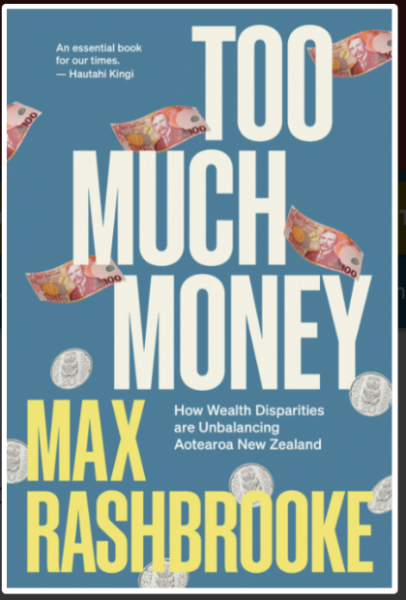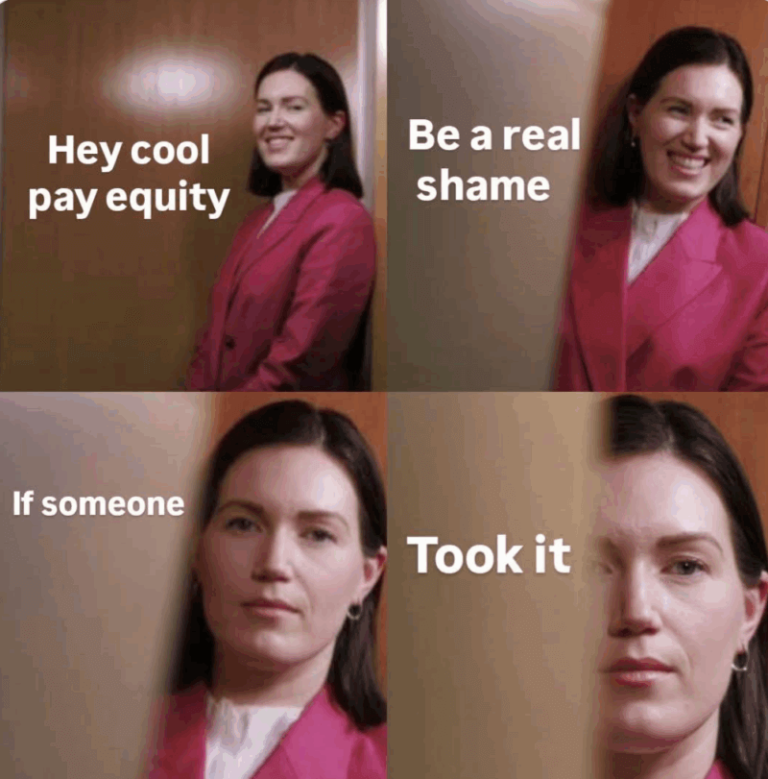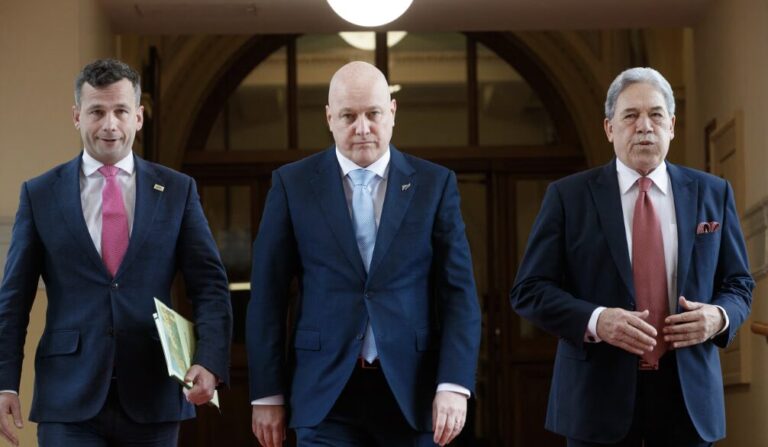Let them eat cake
I look forward to reading Max Rashbrooke’s latest book ‘Too much money” It is past time we had the public debate about the divisive and unsustainable inequality that has been driven by our low-tax, free-market system. Solutions will require vision, bravery and leadership.
The headlines in the daily paper show how far part society is drifting. A couple in Auckland (who may be perfectly nice people) are demolishing their $24m mansion on the waterfront (with swimming pool) and commandeering scarce building resources (in a time of a severe housing crisis) to develop an even more luxurious palace (together with Helipad).
In the same week we hear that in the past three months, the demand for Te Tāpui Atawhai Auckland City Mission’s services has been the highest in the organisation’s 100-year history.
Helen Robinson, the Auckland City Missioner says
“The City Mission plans to deliver 9,000 food parcels and 30,000 gifts in the two weeks leading up to Christmas, which Robinson said was its capacity.
“In fact, we’ve been doing the most of what we can do for the last three months so this planning for Christmas is truly kind of the last draw of breath that the mission can give this year to respond to the level of need.”
I expect Max Rashbrooke to cover the issue of a wealth tax. A proper tax on holdings of real estate used for excess wealth accumulation would be a step in the right direction. I hope Max also analyses NZ’s three major redistributive programmes; social welfare benefits for working age adults, Working for Families (WFF) for children, and New Zealand Superannuation (NZS) for those over 65.
As evidenced from a recent article in interest.co.nz many commentators clearly dislike beneficiaries, hate WFF and have little sympathy for the plight of low income children, and yet are happy to ignore the comparatively, overly generous treatment of those over 65 even if in full-time well-paid work or with multiple million-dollar properties.
Even many on the left are deeply suspicious of WFF: arguing it is propping up wages that are too low many families. The welfare state is despised equally by both the right and the left, for different reasons.
But the pandemic has shown, too many of us are only a few pay cheques away from the need of state support ourselves. Few seem to understand that all developed countries have a programme like WFF to assist in the costs of rearing children, usually more generous and better designed.
Both NZS for the old and WFF for the young, effectively ensure there is a basic income; the old get this cushion in the form of a universal taxable pension, the young in the form of a weekly cash payment to the parent that is given to all low-income families and reduces gradually as income increases above $42,700. For both payments, this is unconditional money that helps prevent old age destitution for those over 65 and child poverty.
NZS is expensive, ($18 billion for around 900,000 people) wage-linked and only slightly targeted through the tax system so that millionaires still get 75% of the amount pensioners with no other income receive. WFF is relatively cheap ($3.5 billion with around 1million children), is tightly targeted, discriminates against children in families on benefits, creates very high effective marginal tax rates above $42,700, is not linked to wages and is only partly indexed to the CPI.
But the bureaucrats in Wellington have decided (with no evident objection from politicians) that their long-winded review of WFF had become too hard to continue this year. Instead of the profound reform that is needed, some minor ad hoc changes for next year have been announced. Furthermore, subsidization of foodbanks appears to be their answer to the manifest, overwhelming need this Christmas.








NZ is officially a “Tale of two cities” with the bottom 50% owning just 2% of the wealth. Due to a nearly 40 year neo liberal state and culture, perpetuated by consensus between all major Parliamentary parties, and the support of fifth columnists in the top echelon of the Public Sector, and the weak state of the central labour organisation–NZCTU.
The other factor is the very large middle class urban and provincial, and the preponderance of petit bourgeois small businesses–these seem the voices heard most loudly during COVID. As a group these people are intolerant and unhelpful towards other citizens less fortunate (as some of them collect their NZ super–which you better not call a dirty filthy benefit!) Those on the other side of the digital and wealth divide barely get heard unless they can be demonised in some way.
Reviews and tinkering will not achieve the change needed to drastically reduce alienation, poverty, and blighted lives in this land of plenty. Political disruption is what is needed between now and the 2026 Election to achieve a rolling back of the neo liberal state and laws such as State Sector Act, Social Welfare Act 1964 etc. etc.
NGOs, public intellectuals, academics, community leaders of all stripes must be recruited to a new political movement that seeks to unite all who can be united to take this country in a different direction. Boomers have a long tail but are no longer the absolute majority voting block they once were. New gen voters need to step up or they will be in precarious employment and over priced rented dumps all their lives.
–Roll back the neo liberal state
–Retire WINZ/MSD, Basic income for all citizens, new agency for special needs
–Free Wifi and devices for working class families
–Return power generation and supply to full public ownership
–State house and apartment mega build, tiny house precincts for homeless
–Tax housing speculation till it hurts
I’d vote for that.
I have suggested a new informal movement called The Gruntles (opposite of Disgruntled) to go charging forward with a positive and practical attitude with the discipline of The Light Brigade (could we manage this without fancy uniforms and horses?). Let’s put the effort into planning method for a real New Zealand/Aotearoa, the old one is perished, the balloon is on the ground.
I’m not sure what problem you’re trying to fix here. The rich pay far more than their share of the tax, they create jobs and for the most part don’t commit crime. So why not leave them alone to do their thing?
The main problem in NZ is not rich people, it’s poor people, but surely we have enough evidence now, gathered over a century, that taking from the rich to support the poor just creates more poor people, more failure, more crime.
“The rich … for the most part don’t commit crime.
It could be argued that the poor for the most part don’t commit crime, Andrew. Although it must seem to some that an unrepresentative number of the poor are incarcerated for their crimes. But take away gang affiliations – and some would argue the historical effects of collonialism (visible everywhere indigenous peoples have been fucked over) and our prisons would be half empty, wouldn’t they. For the most part its not the poor in prison but the disenfranchised. Anyway, the rich ain’t impervious to crime. They for the most part just commit different crimes and get away with it better.
“… we have enough evidence now, gathered over a century, that taking from the rich to support the poor just creates more poor people, more failure, more crime…”
So we have more poor people, more poverty and more crime now than ever before. That’s because we’ve taken more than ever from the rich?
“So we have more poor people, more poverty and more crime now than ever before. That’s because we’ve taken more than ever from the rich?”
Ahh so we have been looking at this all wrong. The trickle down theory was right all along?…
Why Trickle-Down Economics Fails
Critics believe that the trickle-down policy has done damage to the U.S. economy more times than it has helped. It has met with disastrous results when applied at the federal and state level.
Kansas is a case in point. Business taxes were cut by almost a third, which left the state’s income in the red. The benefits have gone to a handful of the wealthy, who did not invest much to spur the state’s economic growth. Because the state’s revenues are markedly decreased, Kansas’ education budget has been significantly curtailed as well.17
The International Monetary Fund (IMF) also rejects the trickle-down theory. In its report authored by five economists, it argues that “…increasing the income share of the poor and the middle class actually increases growth while a rising income share of the top 20% results in lower growth—that is, when the rich get richer, benefits do not trickle down.” The IMF’s fight against income inequality revolves around the fact that expenditures of middle-to-low-income sectors are the drivers of the economy. Even a mere 1% increase in wealth for 20% of low-income earners yields a 0.38% growth in gross domestic product (GDP). On the other hand, increasing the income of the top 20% high-income earners results in a 0.08% decrease in GDP.18
The rich get richer because they hold onto their money, invest, increase their wealth no one else.
..Really….so who do you think uses the 75 plus tax havens around the world!
That pic of Key in his pool riles me too.
I really resent the lie propagated by his PR machine and believed by the public, that Key donated his P.M salary to charity…..the reality was …’a portion’!
Equitable taxation. Redistribution of wealth. It’s an age old problem, ain’t that the truth. CGT; WFF; tweaking the NZS; reforming personal tax rates; imposing a land tax for residential owners; addressing corporate tax avoidance; taxing overseas companies earnings in NZ: not that the mugwamps in Wellington don’t have the ‘tools’.
I half-heard a story the other day, about one of those ‘controlled’ psychological studies akin to the Milgram experiment. You know the one about obedience and authority where under the right circumstances normally rational folk will obey unjust orders and punish their fellow brother and sisters. Except in this case it was about the board game Monopoly, you know the one folk my age all played as kids – and indeed as adults with our kids and grandkids– on rainy winter afternoons and in summer holiday batches. The great race rush to personal and corporate wealth, eh. Can’t remember anyone setting out to be poor. I wish I had noticed such an individual who mocked convention. Too focussed on winning. In the experiment the researchers gave a leg up to half the players by giving them double the start-up cash and doubling the pass-by Go prize. No surprise what became of that. Equally unsurprising was that the ‘winners’ became mean as. No compassion when the others folded. But after the winners had cleaned up and when asked by the researchers what was the making of their success, to a person they said ‘good decisions’ and ‘skill’. Not one considered the possibility they had a helping hand from the start. I suspect that was the main finding.
The story is ripe for interpretation. I have a wish the mugwamps in Wellington hear it and take notice. In a civil society it could be argued an important role of government is to redistribute wealth. But I think they know this already. We are not living in the middle ages or a 19th Century Dickensian world. Neoliberialism doesn’t help. Its a modern day scurge. But there are tools. Sadly not the political will, not the will that really makes a difference. There’s as role for charitable organizations too. But I get the impression a good many orindary folk are a bit indifferent. Roll the dice and watch the portfolio grow. To hell with the others.
By not eating cake, treats or gifts except very very seldom like once in a blue moon, the poor will be better off.
An uncontrolled appetite for unhealthy foods and drinks is not a good thing, and leads the unwary to poverty more than anything else.
Let them have food for the spirit.
Thanks and Praises
Jah Bless!
I would like to see the age of entitlement to the old-age pension reduced to 63 which is when most people have just about had enough of working at their jobs. But the pension should be pegged to other income people are earning or have in assets. In regards to the latter, not to an extreme extent but something reasonable. If this is a disincentive for people to work past the age of 63, then well and good. It means their often good jobs (few people keep on working past the age of 65 is their job is unpleasant to them) will instead be available to younger people.
The gutless, ignorant and easily scared voted for Muldoon to get rid of a super scheme. The terrible legacy of that National government bites every day. That’s the way the cookie crumbles, that’s fine.
The same citizens for years complaining about the consequent schemes and attendant and future problems? They shat in our nest big time and ignored that deed but certainly they didn’t STFU about how things should be. Being the experts and all. To me that’s not fine.
“The terrible legacy of that National government bites every day.” Sure does ,and it still hurts many of us Oldies. Those cossacks dancing across the screen every night in that campaign won the election for Muldoon. As usual their “Dirty Tricks brigade” won it for them even though it was an outright lie.
Labour made up for it in 1984 by letting Rogernomics take us over. Now we can’t even shake that off.
We were shafted by both sides. What has that left us with? A Parliament full of mediocre incrementalists going nowhere other than downhill.
My main issue with WFF is that it is essentially a benefit. Not saying it’s not necessary but why not reform the tax rate to redistribute wealth. If you made the first $14000 of earnings tax free, rather than the present 10.5% and the rate for earnings from $14000 – $48000 reduced from 17.5% to 15% you would add approximately $45 per week to the incomes of those earning less than $48000. Then leave the next tax rate at 30% up to $70000 pa. After than increase the rate to 34% up to $120000 and have the 39% rate kick in at $120000 instead of $180000.
There are a lot of other measures like addressing corporate tax avoidance and taxing overseas companies earnings in NZ that also need addressing but redistributing the PAYE tax rates could give an immediate boost to lower income earners. Of course, those tax rates also apply to benefits so beneficiaries would also have an earnings boost.
ChrisR Thank you for the suggestion. But an extra $45 to those earning under $48,000 CANNOT replace WFF. What you have suggested would make us more like Australia where the first $18200 is tax free. (Dont forget too that their GST is only 10% and exempts a lot of the basics). Yet the Australian system of family tax benefits ( akin to our WFF) is still much more generous than WFF. For a start they include all low income families without discrimination against those on benefits. Currently a sole parent with 5 kids on a benefit in Australia gets $35,199 in tax benefits for the children,$10,393 more than in New Zealand–see https://www.cpag.org.nz/assets/AUSvsNZChildTaxCreditsForWeb.pdf
Susan, as Sabine picked up, the point of my post was not necessarily to do away with WFF. It was to suggest re-distributing the personal tax rates so those at the bottom pay less and those at the higher end pay more. I don’t have all the information to do full costings but I suspect it would be largely cost neutral in terms of the present PAYE tax rate. I certainly don’t mean to imply that an extra $45 per week in the hand is enough or that there wouldn’t need to be a top-up for lower income earners. What I do think though, is that having someone feel their earnings from working gives them a bit more ability to meet their basic needs is important for people’s dignity. While I’m personally on a good income now, I know what it’s like to work long hours, earn very little and be living from week to week.
ChrisR I appreciate that thanks for clarifying. The low tax flatish rate model we inherited from Roger Douglas shifts the tax burden from the top to the middle. The bottom is protected with tax credits– but when they abate the increase the Marginal tax rates of low middle income people over long income ranges. Last weeks WFF changes that increased the rate of abatement of WFF to 27% mean that families over $48,000 face effective marginal tax rates of at least 57%– add on ACC kiwiSaver and student loan repayments and you are over 70% to say nothing of loss of child care subsidies or child support payments when they apply. It is easy to earn another $20-50,000 or more and be literally no better off. What can we do about it now? it needs another blog….but hint it means increasing taxes markedly at the top end of income and wealth
Australia can do that because China subsidise Australian inflation as well. Jacinda best pull fucking finger and structure New Zealand’s relationship with China correctly.
Yes. It’s been said that exactly the same result as WFF could be achieved by just adjusting tax rates.
However one has to bear in mind the reason for implementing it in the first place was as an election sweetener by Clark – she had to be seen to be ‘giving’ people something in order to promote herself in the polls.
And exactly why National kept it, oh the irony.
Agree with your accept for the up to 70k bracket as this is not a lot of money with CPI rising as we speak.
WFF can also been seen as middle class welfare and the foreign banks need to be sorted they are creaming it at our expense. We need to keep building good quality homes (preferably a good mix of homes not just blocks of flats) for working class people and their changing families. We need to be careful with too much immigrations as our infrastructure is buckling. We need to increase funding for palliative care as we have an ageing population. Our government needs to apply an equity lens in all of their economic policies as they are currently increasing wealth at the wrong end.